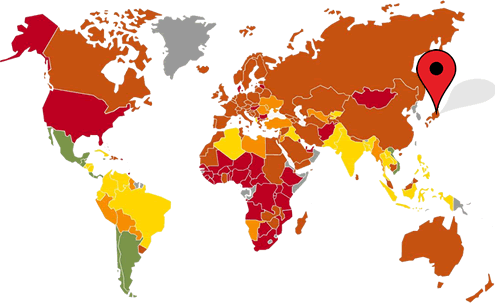Teaching English in Nara, Japan

Report submitted on 4 Jan, 2016 by byond.
Teaching English in Nara, Japan:
How can teachers find teaching jobs in Nara, Japan?
I worked first at a private women’s university in Osaka for 38 years. After retirement I went to work at a language school teaching children. I would suggest that teachers check job sites online and also newspapers for available jobs. Other possibilities are checking with people they might know who are living in the country/area that they wish to go.
The main English teaching jobs available are:
Full time English language school positions, part time English language school positions, agencies (send teachers to different locations), teaching at companies, teaching at community centers, etc., private teaching (not through a school, agency, etc.)
What are the minimum teaching requirements?
If the candidate is looking for a position at a university, then a PhD is often required these days. At least an M.A. is necessary. University jobs are hard to come by these days. If the person is looking at language schools, then a B.A. may be all that its required. The JET program is still a fairly good way to get experience in Japan.
What teaching requirements would you recommend?
I recommend at least a B.A., some ESL training if not an actual degree and at least a little experience.
What are the levels of payment?
It of course depends on the place but the average is about 2,500 to 3,000 yen per hour (approximately $20-25/hour).
With the high cost of living in Japan, it’s often hard to make ends meet.
How many teaching days a week is normal?
5 – 6 days per week.
How many face-to-face teaching hours a week is normal?
18 hours per week.
What is the normal arrangement for holidays?
All national holidays are usually off. If the job is part-time, you are not paid for holidays.
What advice would you give to someone considering coming to Nara, Japan to teach English?
It’s a nice, safe place to get experience if you don’t mind crowds, noise, high prices and language barriers.
What are the positive aspects of teaching English in Nara, Japan?
People are generally very well-mannered. The service industry in Japan is top-notch, unbeatable, so that makes living here easier.
What are the negative aspects for teaching English inNara, Japan?
If you don’t speak the language, you might encounter problems and there are many rules that some might find unbearable.
What are some of the teaching challenges for English teachers teaching the local people in your area?
For some, the lack of progress seen in their students might be a challenge.
Living in Nara, Japan:
Are there any visa or other legal requirements to live in Japan?
Yes, you need a working visa. You’ll need a sponsor for that visa, so getting employment assured before arrival is best.
What is the cost of living like in Japan?
It is expensive.
What are the usual accommodation arrangements and how can you find accommodation?
Some places will include accommodation but most do not. You have to find it on your own. It’s best to take someone who speaks Japanese with you to the real estate agent. Many places require hefty key money (down deposit which is usually refundable when you leave).
Other than teaching, what positive aspects are there for living in Nara, Japan?
It is a very safe, relatively clean environment.
Other than teaching, what negative aspects are there for living in Nara, Japan?
Lack of space; crowded streets.
What advice would you give to someone considering coming to Nara, Japan?
Bring an open mind, patience and a real desire to learn to adapt.
What things do you miss most (other than family and friends) from your home country?
Space, variety of health type foods..
What do you think you will miss most when (or if) you leave Japan?
The wonderful hospitality and service that you get everywhere you go here.
What things would you recommend to new teachers in your area to bring with them from their home country?
If they are on the large size, then enough clothes and shoes to last until they can return or get someone to send them.
About Me and My Work:
My Name: byond
Nationality: U.S.A.
Students I’ve taught in Japan: pre-school / kindergarten (4-6 years), elementary (6-12 years), university, adults, business.
Where I teach: English Masters Communication Center in Nara, Japan. Teaching here for 2 years.
My school facilities: Excellent- Classrooms are bright and airy, I’m given full reign to choose textbooks and teaching materials and given a proper budget for buying them, the staff (both teachers and office) are wonderful to work with and it is easily accessible by public transportation.
Do you teach English in Japan?
Tell us about your experiences – click here to submit your report about teaching English in Japan.


